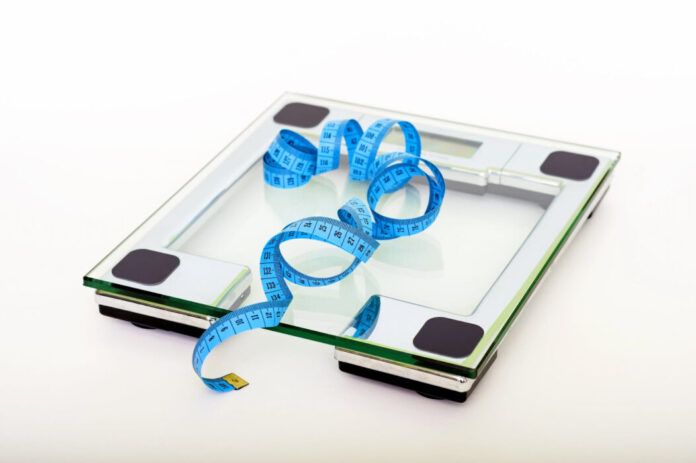Weight loss can be a taxing goal. The strategy of eating less and moving more works in theory but rarely in practice. Underlying medical issues, lifestyle challenges, and even socioeconomic factors all play an integral role in weight loss.
There are numerous reasons why you might be struggling to reach your weight loss goals. Here are some of the common reasons why you’re not losing weight and what you can do to fix them.
Poor Gut Health and Digestion
Your digestive health plays a vital role in how you process food. Think of it this way – the better your body is at processing food, the more efficiently your body processes calories and nutrients. If you’ve struggled with digestive issues in the past, there’s no better time to review your gut health.
Introducing probiotics can help improve your digestive efficiency and keep your systems running smoothly. Taking weight loss probiotics can re-introduce healthy bacteria into your gut to ensure that your digestive system is processing food properly. Taking this supplement, or ingesting probiotics through natural foods, can help reduce bloating, improve digestion, and help you reap the associated weight loss benefits.
Under-Calculating Caloric Intake
Calculating calories can be daunting. Many variables can impact the accuracy of your efforts. It’s important to note that even food labels have a large margin for error, meaning you can do everything right and still be wrong.
Under-calculating caloric intake is a common issue when trying to use calorie counting for weight loss. Things like cooking meat can impact caloric content. Additionally, condiments, cooking oil, peanut butter, etc., add up quickly if you don’t measure the serving size properly.
It’s often those subtle miscalculations that make the most significant difference when calorie tracking. People often underestimate their caloric intake by 40%. If you’re not losing weight despite your best efforts, consider measuring condiments and portions until you’re certain your measurements are accurate.
Stress
Stress does interesting things to the human body. Not only does stress impact dietary choices and trigger impulsive eating habits, but it also causes hormonal fluctuations that can impact weight loss.
During stressful periods, the body releases cortisol, a hormone that’s intricately related to weight gain. The release of cortisol is also tied to the development of insulin resistance and type 2 diabetes.
Think of it this way: if your body is chronically stressed, it will go into survival mode. Unfortunately, your body hasn’t evolved past the point of knowing the difference between work stress and being chased by a saber-toothed tiger. When your caveman brain kicks in, it tells your body to hold onto body fat to keep you warm and nourished during hard times.
Before you start cutting more calories or move onto the next diet, consider how you’re managing your stress levels. If you’re more stressed than usual and unable to process it in a productive manner, you won’t lose weight. Focus on developing coping skills and stress management, and you’ll see a change soon enough.
High Sodium Intake and Water Retention
It’s important to understand the distinction between weight loss and fat loss. There’s more to your body than fat and bone. Depending on the day, you could be retaining more water than the last time you weighed yourself. If you had a weekend with lots of salty snacks or high-carb meals, chances are you’re retaining water. Each gram of carbs comes with 1 to 3 grams of water. Add some sodium to the mix, and that Monday morning weigh-in may yield surprising results.
So, what does this mean when trying to lose weight? By no means should you start banishing bread or fun nights with your friends from your routine. However, know that these metrics can skew the reading on your scale.
Inadequate Sleep
Movement and nutrition play an integral role in how you lose weight over time. However, all of those efforts can be thwarted by sleep deprivation. When you sleep, your body goes into a state of healing and restoration. This contributes to hormone regulation, which, in turn, contributes to weight loss.
If you aren’t getting enough sleep, your body enters survival mode, similar to periods of high stress. Before you jump to the next fad diet, consider focusing on improving your sleep hygiene and creating a sleep routine for better evening habits.
Unrealistic Goals
There’s an essential difference between losing weight and losing weight in a healthy, sustainable way. The average healthy rate of weight loss should be losing 1-2 pounds of weight per week, depending on the size of your body.
When you feel that you haven’t lost weight, decide if you actually haven’t lost anything or if you haven’t lost enough by your standards. It can take a long time to regulate your hormones, get your habits in check, and focus on the other variables (like sleep) when losing weight.
If you haven’t lost weight, consider the fact that you haven’t given your body enough time to show you the results of your efforts. It can take a year to correct a lifetime of poor dietary and fitness habits – give your body time.
Your Calorie Needs Have Changed
As you lose weight, your body requires fewer calories to function at a basic level. That’s because it takes more energy to move a larger body than it does a smaller body. If you haven’t adjusted your caloric intake since you started losing weight, plateauing isn’t uncommon.
If you have lost some weight but have reached a plateau, consider the fact that your calculations may need a slight adjustment. This is a natural part of the process.
You’re Building Muscle
If a significant portion of your fitness goals is to lift weights, the scale will eventually become irrelevant. Muscle takes up less room than fat tissue, meaning you can become physically smaller and weigh the same.
If you’re lifting weights, consider that your scale may no longer be an accurate form of measurement for your goals – you may weigh the same, but be three sizes smaller.
All bodies are different and there are many variables that can impact your weight loss goals. Remember that the number on a scale doesn’t equal your value as a human, and scale your goals accordingly.


















